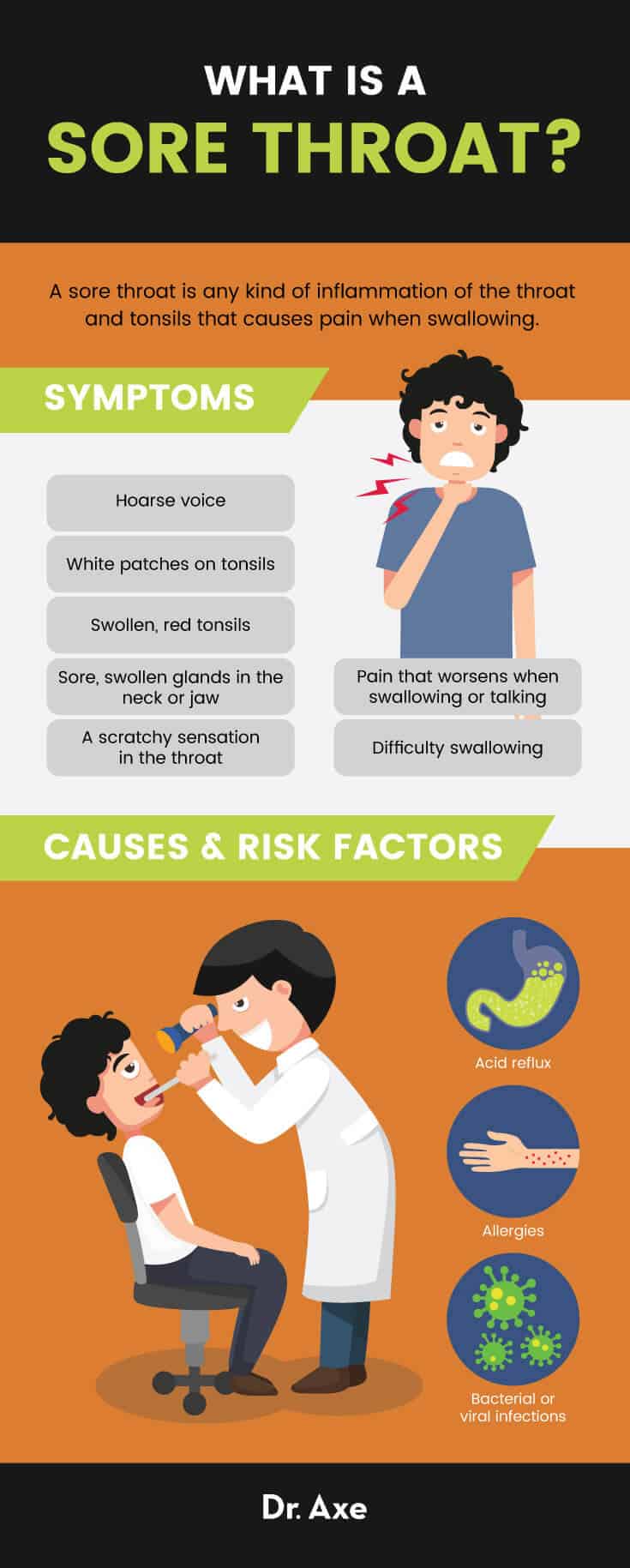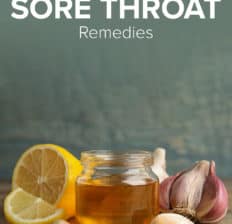This Dr. Axe content is medically reviewed or fact checked to ensure factually accurate information.
With strict editorial sourcing guidelines, we only link to academic research institutions, reputable media sites and, when research is available, medically peer-reviewed studies. Note that the numbers in parentheses (1, 2, etc.) are clickable links to these studies.
The information in our articles is NOT intended to replace a one-on-one relationship with a qualified health care professional and is not intended as medical advice.
This article is based on scientific evidence, written by experts and fact checked by our trained editorial staff. Note that the numbers in parentheses (1, 2, etc.) are clickable links to medically peer-reviewed studies.
Our team includes licensed nutritionists and dietitians, certified health education specialists, as well as certified strength and conditioning specialists, personal trainers and corrective exercise specialists. Our team aims to be not only thorough with its research, but also objective and unbiased.
The information in our articles is NOT intended to replace a one-on-one relationship with a qualified health care professional and is not intended as medical advice.
12 Natural Sore Throat Remedies for Fast Relief
March 22, 2023

A sore throat can come on at any time, and it’s caused by a number of reasons. Thankfully, there are natural sore throat remedies that you can use at home and don’t require an antibiotic prescription to deal with sore throat problems.
Some sore throats can be due to a bacterial infection or strep throat, and some are viral infections. Either way, sore throats are very contagious, and it’s important to address as soon as symptoms develop.
Sore throat remedies such as raw honey, vitamin C and licorice root help ease your discomfort and speed up healing. There are also powerful essential oils for sore throat that can be used internally and topically to slow the growth of bacteria, ease swelling and reduce congestion.
Natural Sore Throat Remedies
Wondering how to get rid of a sore throat naturally? The top 12 natural sore throat remedies are:
1. Raw Honey
Raw honey has anti-inflammatory and antimicrobial properties that can help treat respiratory conditions like sore throat. It can naturally soothe the throat and ease swelling. Other raw honey benefits include its ability to reduce mucus secretion and coughs, which can be associated with a sore throat.
According to research published in the Iranian Journal of Basic Medical Sciences, honey has an inhibitory effect on around 60 species of bacteria and some species of fungi and viruses. It also has antioxidant capacity due to a wide range of compounds, including phenolics, peptides, organic acids and enzymes.
Add raw honey to warm water or tea, or mix it with lemon essential oil, to create a fast-acting sore throat remedy.
2. Bone Broth
Consuming bone broth helps you stay hydrated as it supports your immune system so you can get well quickly. Bone broths are nutrient-dense, easy to digest, rich in flavor and boost healing.
They contain essential minerals in forms that your body can easily absorb, including calcium, magnesium and phosphorus.
According to the researchers at the University of Nebraska Medical Center, the amino acids that were produced when making chicken stock reduced inflammation in the respiratory system.
3. Garlic
Allicin, one of the active principles of freshly crushed garlic, has a variety of antimicrobial activities. Allicin in its pure form was found to exhibit antibacterial activity against a wide range of bacteria, including multidrug-resistant strains of E coli. It also showed antiviral, antifungal and antiparasitic activity.
To use raw garlic as one of your sore throat home remedies, add it to your food throughout the day, or take a garlic supplement daily.
4. Water
Proper hydration is the key to flushing out the virus or bacteria from your system and keeping your throat hydrated. Try to drink at least eight ounces of water every two hours.
You can also drink hot water, be it plain or with lemon, ginger or honey. In fact, a 2008 study conducted in the United Kingdom found that hot drinks provided immediate and sustained relief from symptoms of the common cold and flu, including sore throat.
5. Vitamin C
Vitamin C helps with immune system function and boosts white blood cells. Plus, studies show that vitamin C shortens the duration of respiratory symptoms, especially in people under physical stress.
As soon as you develop signs of a sore throat, take 1,000 milligrams of vitamin C per day and consume vitamin C foods, like grapefruit, kiwi, strawberries, oranges, kale and guava. If it is painful to eat solid foods, try having a smoothie instead.
6. Echinacea
Most of this herb’s chemical constituents are powerful immune system stimulators that can provide significant therapeutic value. Research conducted at the University of Connecticut suggests that consuming echinacea cuts the chances of catching the common cold by 58 percent and reduces the duration of the common cold by 1.4 days.
This proves that echinacea has antiviral properties and can help your body fight off infections that lead to a sore throat.
7. Licorice Root
Licorice root benefits a sore throat or cough immensely because it is a powerful expectorant, helping loosen and expel mucus from the throat. It soothes irritation and reduces inflammation of the tonsils, making licorice root an effective sore throat home remedy.
Researchers have also found that licorice root has powerful antiviral and antimicrobial activities. Many studies found that several components of this common herb were responsible for these activities through different mechanisms, such as the 20 triterpenoids and nearly 300 flavonoids present in licorice root.
Flavonoids, especially chalcones, play an important role in the treatment of bacterial infection by decreasing expression of bacterial genes, inhibiting bacterial growth and reducing the production of bacterial toxin.
8. Zinc
Zinc benefits the immune system and has antiviral effects. When taken for at least five months, zinc may reduce your risk of becoming sick with the common cold, which is associated with a sore throat.
Supplementing once you already feel sick can speed up the healing process, especially when it’s taken at the first sign of illness.
Research shows that zinc can interfere with the molecular process that causes mucus and bacteria to build up in the nasal passages. Because of its electrical charge, ionic zinc has the ability to exert an antiviral effect by attaching to receptors in nasal epithelial cells and blocking their effects.
9. Probiotics
Studies have shown that probiotic supplementation reduced the number of patients who had one or more upper respiratory tract infections and reduced antibiotic use.
In a 2010 study, 638 children aged 3 to 6 years attending a community preschool or daycare were randomly assigned to receive either a drink containing the probiotic strain Lactobacillus casei or a matching placebo for 90 days. The use of probiotics resulted in a reduction of upper respiratory tract infections.
Similar results were seen in another study involving 742 children over the age of 1 who consumed 100 milliliters of a fermented milk product, which reduced the incidence of respiratory issues.
10. Sleep
Getting adequate sleep is vitally important in overcoming a sore throat. In fact, missing sleep can be just as bad for your health as eating poorly and not exercising. Aim for nine to 10 hours of sleep until you begin to feel well.
According to research published in the Archives of Internal Medicine, sleep quality is thought to be an important predictor of immunity and susceptibility to the common cold. Nasal drops containing a rhinovirus were given to 153 healthy men and women.
The participants rated their illness symptoms each day, including sore throat, nasal congestion, chest congestion, sinus pain and cough. The data showed that those with poorer sleep efficiency and shorter sleep duration in the weeks preceding exposure to rhinovirus had lower resistance to illness.
11. Lemon Essential Oil
Lemon essential oil has the power to cleanse toxins from any part of the body. Its antibacterial and anti-inflammatory activity make it a useful sore throat home remedy.
It’s also high in vitamin C, which boosts immune function, and it increases salivation, helping keep the throat moist.
Simply add one to two drops of lemon oil to warm water or tea. You can also inhale lemon oil directly from the bottle, or put five to 10 drops in a diffuser at home.
12. Eucalyptus Essential Oil
Eucalyptus oil is one of the most beneficial sore throat remedies because of its ability to stimulate immunity, provide antioxidant protection and improve respiratory circulation. Research published in Pharmaceutical Biology indicates that eucalyptus oil is used as an antiseptic and for relieving symptoms of sore throat, cough, cold and other infections.
To relieve a sore throat with eucalyptus oil, use it with a diffuser, or use it topically by applying one to three drops on your throat and chest. You can also gargle with eucalyptus oil and water.
If you have sensitive skin, use a carrier oil, like coconut oil, to dilute eucalyptus before topical application. (Avoid use on very young children.)
Symptoms
A sore throat is any kind of inflammatory process of the throat and tonsils that causes pain when swallowing. About 10 percent to 30 percent of people present in primary health care services complain of a sore throat each year.
Sore throat signs and symptoms vary depending on the cause. Some common sore throat problems include:
- pain that worsens when swallowing or talking
- difficulty swallowing
- a scratchy sensation in the throat
- sore, swollen glands in the neck or jaw
- swollen, red tonsils
- white patches on the tonsils
- hoarseness
If an infection causes your sore throat, you may develop a fever, headache, body aches, cough, runny nose and nausea.
In otherwise healthy people, a sore throat infection rarely produces serious aftereffects. It usually disappears on its own, usually within a week.

Causes and Risk Factors
The organisms that cause a sore throat may be bacterial, most commonly streptococcus, or viral, typically rhinovirus. However, it’s difficult to tell the difference between the two types of infections.
Viral infections generally come with cold or flu symptoms, like runny or stuffy nose, sneezing, cough, mild fever, and fatigue. In adults, viral infections cause 85 percent to 90 percent of sore throats.
Strep throat symptoms usually don’t include a runny nose or cough. Instead, look for swollen lymph nodes in your neck, white patches on your tonsils, signs of a fever and throat pain, especially when swallowing.
If you have strep throat, you may even develop a rash and red spots in the back of your throat. Children between the ages of 5 and 15 are at the greatest risk of developing strep throat. Strep causes only about 10 percent of sore throats in adults.
Other than streptococcal infections, a sore throat can be a sign of tonsillitis as well. Of course, streptococcal can cause tonsillitis, so it can be a combination of issues leading to a sore throat. If you do have tonsillitis, a tonsillectomy to remove the tonsils may be in order.
The same is true with mononucleosis. Mono can be a contributing factor to a sore throat, often with patches on the tonsils that may look like strep throat.
It can be hard to discern between strep throat and mono, so see your doctor to get the proper mononucleosis or strep throat diagnosis.
Sometimes a sore throat can be the result of acid reflux or allergies.
With acid reflux, acid from your stomach comes up through your esophagus, which can result in throat irritation and soreness. Some other acid reflux symptoms include dry mouth, difficulty swallowing, hoarseness, regurgitation of acids or foods, bitter taste in the mouth, and heartburn.
Certain food or environmental triggers can cause an allergic reaction, resulting in a sore, irritated throat. Seasonal allergy symptoms include scratchy and sore throat, watery eyes, congestion, sneezing, runny nose, and tickle or irritation in the ears.
Other sore throat causes can include throat pharyngitis viral, postnasal drip and cold/flu.
Precautions
If your child develops severe symptoms, such as trouble breathing, difficulty swallowing or unusual drooling (which may mean that she’s unable to swallow), contact your health care provider immediately.
For adults, see a doctor if you develop a fever higher than 101 degrees Fahrenheit or if you are having difficulty breathing or swallowing. If sore throat symptoms do not go away after a week, call your doctor.
Final Thoughts
- A sore throat is any kind of inflammatory process of the throat and tonsils that causes pain when swallowing.
- Common sore throat symptoms include pain that worsens when swallowing, swollen glands in the neck or jaw, swollen, red tonsils, and white patches on the tonsils. The good news is there are several sore throat remedies available.
- Conventional sore throat remedies generally include antibiotics, like penicillin, and over-the-counter pain relievers.
- There are supplements, foods and essential oils that work as natural sore throat remedies. Some of those sore throat remedies include echinacea, bone broth, probiotics and lemon essential oil.












